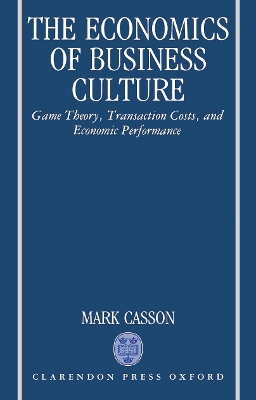Clarendon Paperbacks
2 total works
In this book the author analyses the economic effects of culture. By culture he means social values such as honesty, dedication, and loyalty. He argues that the gains from technology in modern societies can be offset by high cost stemming from the missing moral dimension, and that this has implications both for economic competitiveness and for social and economic institutions such as families and trade unions.
This book develops a new theoretical approach to entrepreneurship in the firm. The author challenges the long-held belief that economics is a discipline that can be adequately pursued in isolation from the other social sciences. He argues that the productivity of economic units - whether families, firms, or nation states - is affected by the degree of cooperation between the members of these units, which cannot be fully understood unless cultural dynamics are considered. Economic and cultural determinants of performance are combined into a single analytical framework, applying theory to a wide range of topical issues which it is hoped will be of major interest to policy-makers and strategists in the US, Europe and Japan. These include the use of corporate culture to engineer a climate of trust within the firm, and the use of joint ventures to extend networks of trust into other firms as well. The book's international perspective highlights the way cultural differences influence innovation and competitiveness at both the corporate and national level.

